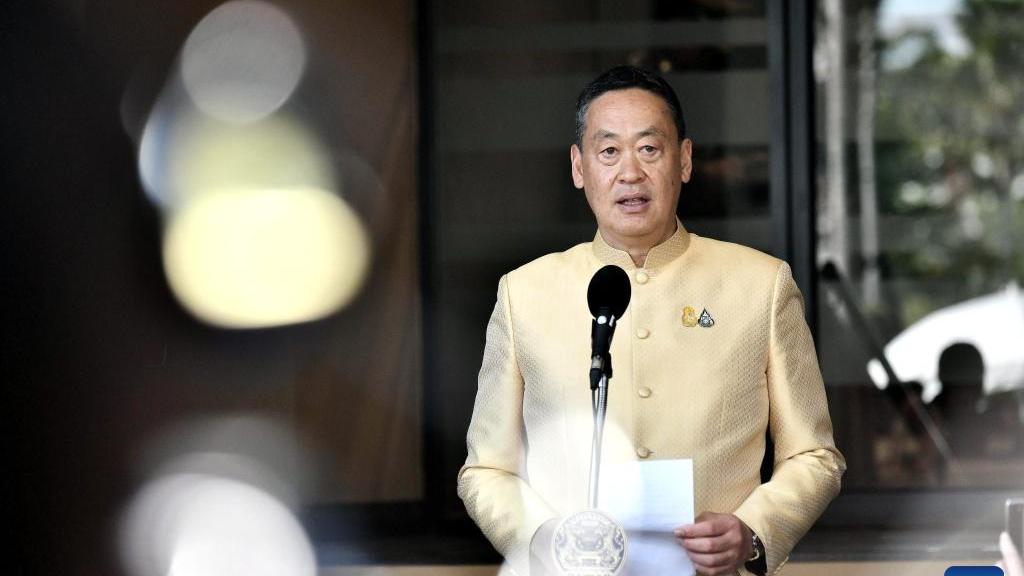 Thai Prime Minister Srettha Thavisin delivers a speech in Bangkok, Thailand, Jan 2, 2024. (PHOTO / XINHUA)
Thai Prime Minister Srettha Thavisin delivers a speech in Bangkok, Thailand, Jan 2, 2024. (PHOTO / XINHUA)
BANGKOK - Thai Prime Minister Srettha Thavisin on Wednesday announced a 3.48 trillion baht ($101.52 billion) budget for the second half of the current fiscal year, kicking off a three-day debate among lawmakers.
"The budget is crucial in moving the economy forward," Srettha told parliament.
Southeast Asia's second-largest economy is expected to grow 2.7 percent to 3.7 percent this year, he said, adding that inflation is expected to be between 1.7 percent to 2.7 percent.
The lower house will vote on the budget this week and it is expected to be ready by early May
The new budget for the second half of the fiscal year ending September 2024 sees a 9.3 percent rise in spending and a drop of 0.3 percent in the budget deficit to 693 billion baht from the previous year.
ALSO READ:Thailand to grant visa-free travel to visitors from China
This year's budget was delayed from last year due prolonged political gridlock following a May election. A new government was formed in August. The proposed budget does not include some items already allocated for the first half of this fiscal year, such as civil servant salaries.
About a quarter was allocated to addressing social issues like an aging population, enhancing education and expanding universal healthcare, Srettha said.
The lower house will vote on the budget this week and it is expected to be ready by early May.
ALSO READ: Thailand's Songkran set to go global after UNESCO listing
About 11.3 percent is allocated to accelerating competitiveness, including energy security, digital economy, and future industries like electric vehicles, Srettha said.
Thailand's economy grew much a weaker-than-expected 1.5 percent in the July-September quarter from a year earlier, the slowest pace this year, on soft exports and government spending.
The government's $14 billion policy to give 10,000 baht to nearly all Thais for spending in their local communities was not included in the budget, but would be considered in separate legislation.


